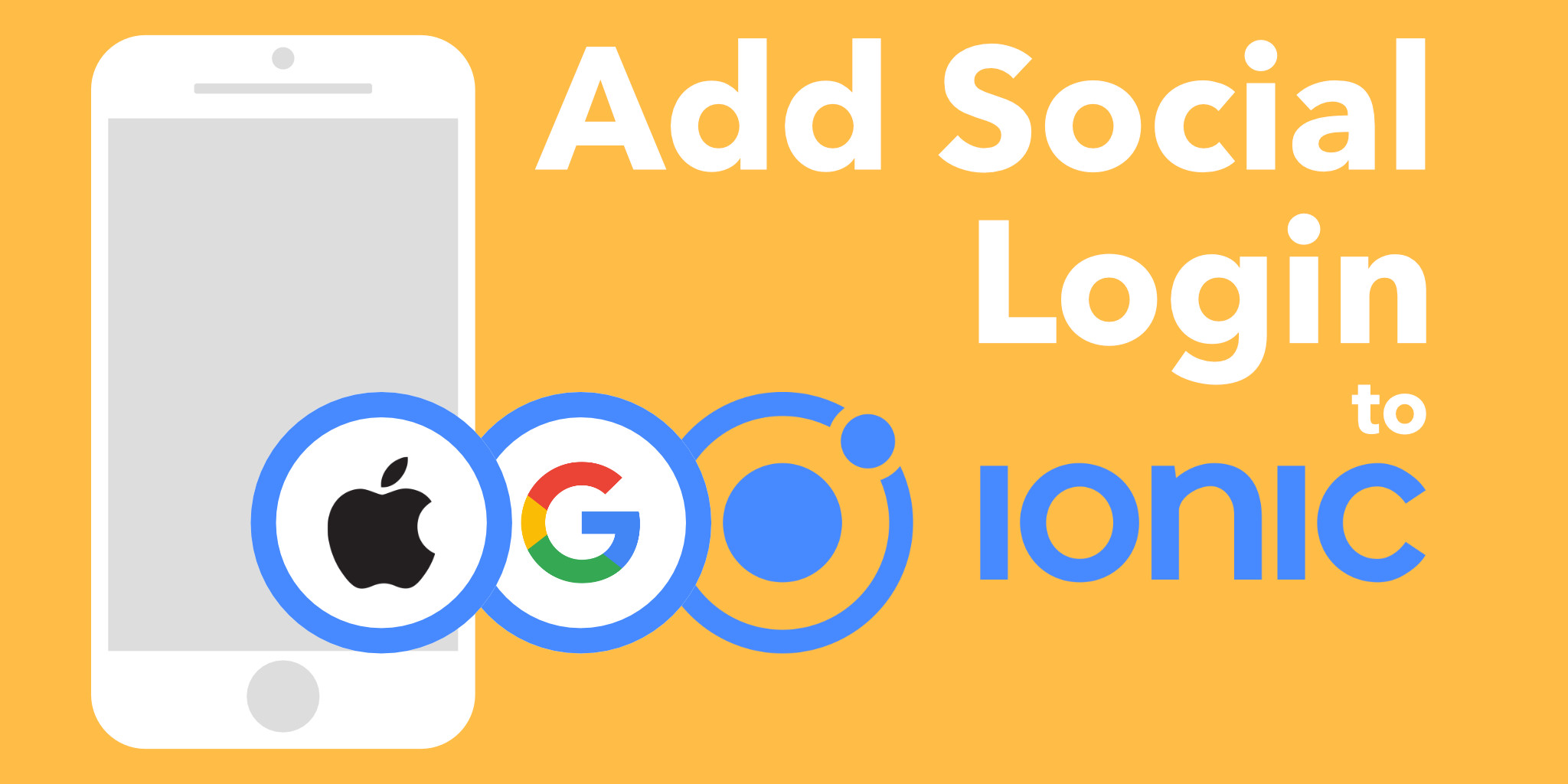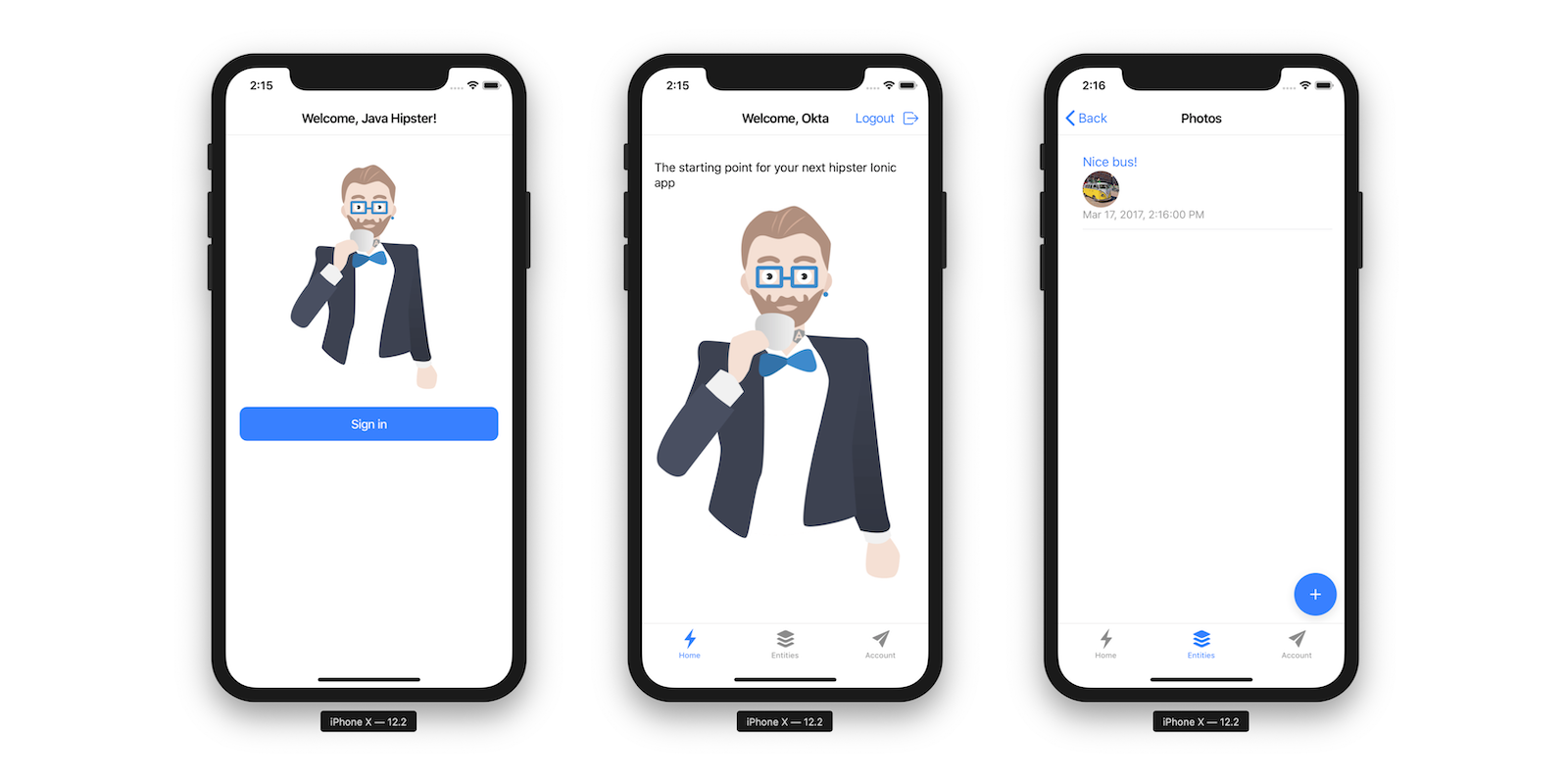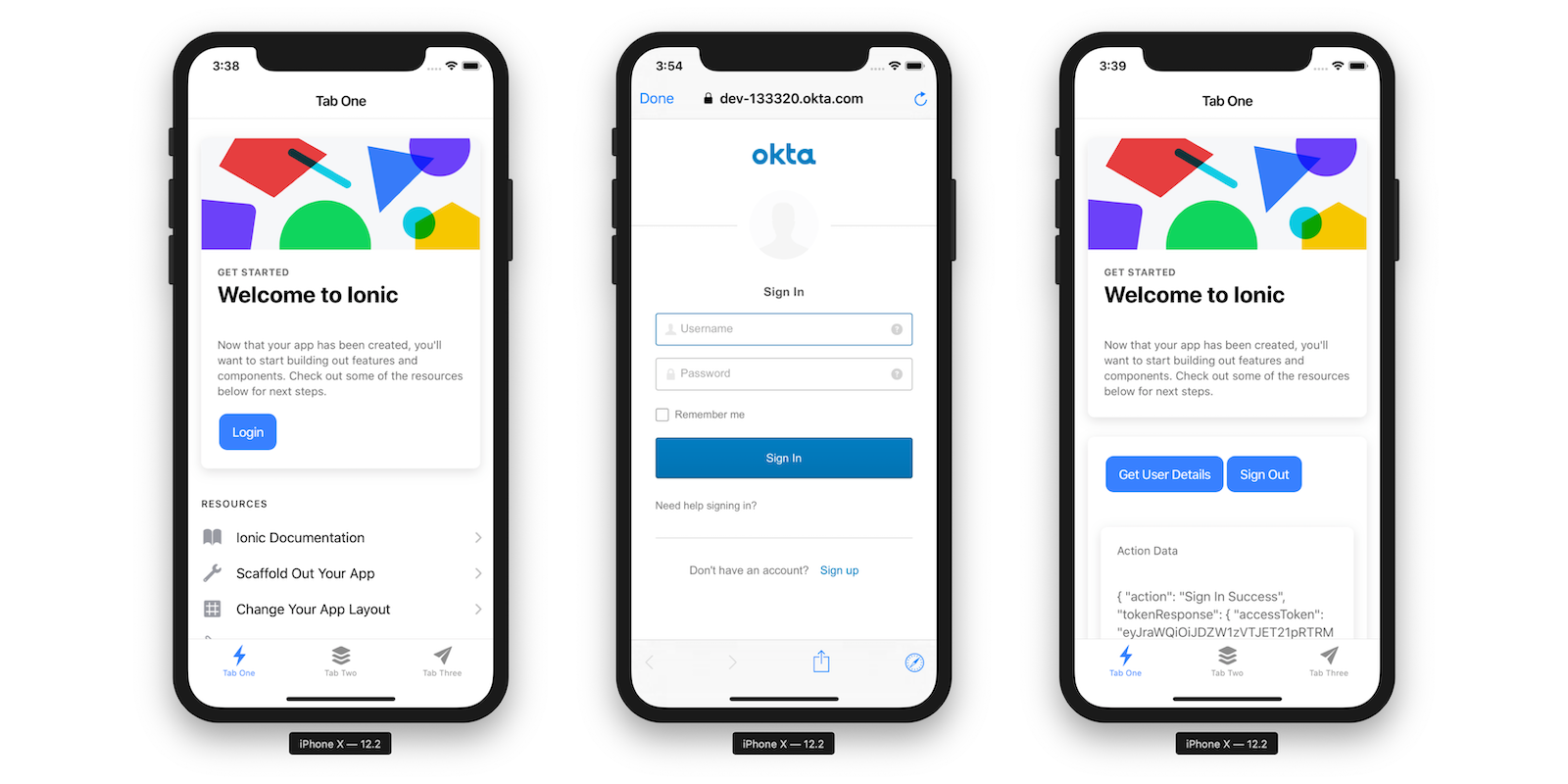Articles tagged ionic
Build Secure Ionic Apps with Angular and JHipster

Ionic is a framework for building mobile apps with web technologies that look and act like native apps. Because they’re built with web technologies (HTML, JavaScript, and CSS), you can also deploy your Ionic apps as single-page applications. Or, even better, as progressive web apps (PWAs) that work offline. Ionic supports the big three web frameworks: Angular, React, and Vue. Once you’ve written your app, you can deploy it to a simulator or device with...
Ionic + Sign in with Apple and Google

Apple announced a Sign in with Apple service at its WWDC developer conference in June 2019. If you’re familiar with social login with Google or Facebook, it’s very similar. Most of these identity services use OAuth and OpenID Connect (OIDC), and Apple’s implementation is similar. Today I’d like to show you how to develop a mobile application with Ionic, add OIDC authentication, retrieve the user’s information, and add social login (aka federated identity) with Apple...
Mobile Development with Ionic, React Native, and JHipster

Mobile development offers a lot of options. To develop native apps, you can use Java or Kotlin on Android. On iOS, you can use Objective C or Swift. There are other options, too. You can build hybrid mobile apps and Progressive Web Apps (PWAs). Hybrid mobile apps are those created with web technologies (HTML, JavaScript, and CSS) that look like native apps. PWAs have the ability to work offline and act like mobile apps too....
Build Mobile Apps with Angular, Ionic 4, and Spring Boot

I’m a big fan of Ionic. I started using it several years ago when it was based on AngularJS. As a developer, I really liked it because I knew Angular. I found didn’t have to learn much more to be a productive developer with Ionic. What is Ionic? I’m glad you asked! Ionic is an open source project that allows you to build mobile apps using web tech. Technically, this is called a "hybrid" app...
Tutorial: User Login and Registration in Ionic 4

Ionic allows you to develop PWAs and hybrid mobile apps. PWAs are web applications that run in a browser and allow for offline capabilities via service workers. They can be installed on desktops and mobile devices, just like you install apps on your smartphone. Hybrid mobile apps are like native mobile apps, except they’re built using web technologies. Ionic 2 was based on AngularJS. Ionic 3 was based on Angular. Ionic 4 allows you to...
Add CI/CD to Your Spring Boot App with Jenkins X and Kubernetes
A lot has happened in the last five years of software development. What it means to build, deploy, and orchestrate software has changed drastically. There’s been a move from hosting software on-premise to public cloud and shift from virtual machines (VMs) to containers. Containers are cheaper to run than VMs because they require fewer resources and run as single processes. Moving to containers has reduced costs, but created the problem of how to run containers...
The Hitchhiker's Guide to Testing Spring Boot APIs and Angular Components with WireMock, Jest, Protractor, and Travis CI
Writing apps with Spring Boot and Ionic (which is built on Angular) can be fun because both frameworks offer a good developer experience (DX). You change a file, save it, and the app automatically reloads with your changes. This feature is often called hot-reload and it’s a blissful way to develop. It’s so nice, it can cause you to forget about automating your tests. I’ll admit, writing tests is difficult to do. Writing the test...
Use Ionic for JHipster to Create Mobile Apps with OIDC Authentication
We 💙 Ionic, JHipster, and Java here at Okta. Ionic is a framework for building native mobile apps using web technologies. Technically, this is called a “hybrid” app because it’s not using native SDKs. Hybrid mobile apps are distributed just like native apps: they can be installed on mobile devices, and they’re listed in app stores. As an end user, there’s a good chance you can’t tell the difference between a hybrid mobile app and...
Protect Your Cryptocurrency Wealth Tracking PWA with Okta
Cryptocurrencies are all the rage. Over the last year, the value of Bitcoin alone has risen 1,603%, driving more and more people to wonder if they’re missing out on the “next big thing.” Because of the massive influx of money into cryptocurrencies like Bitcoin, Ethereum, Monero, and Ripple — blockchain technology (which is the foundation of all cryptocurrency) has become an area of intense technical study. At its core, blockchain technology does nothing more than...
Build an Ionic App with User Authentication
With Okta and OpenID Connect (OIDC) you can easily integrate authentication into an Ionic application, and never have to build it yourself again. OIDC allows you to authenticate directly against the Okta API, and this article shows you how to do just that in an Ionic application. I’ll demo how to log in with OIDC redirect, using Okta’s Auth SDK as well as how to use OAuth with Cordova’s in-app browser; user registration is omitted...
The Ultimate Guide to Progressive Web Applications
Progressive Web Apps, aka PWAs, are the best way for developers to make their webapps load faster and more performant. In a nutshell, PWAs are websites that use recent web standards to allow for installation on a user’s computer or device, and deliver an app-like experience to those users. Twitter recently launched mobile.twitter.com as a PWA built with React and Node.js. They’ve had a good experience with PWAs, showing that the technology is finally ready...
Tutorial: Develop a Mobile App With Ionic and Spring Boot
You already know that building APIs with Spring Boot is incredibly easy. But, your API isn’t complete without a UI, right? Well, building UIs with Ionic is pretty easy too, especially if you know Angular! Ionic is an open source framework designed to help you build mobile applications with web technologies. It started out as a framework based on AngularJS. Ionic 3.0 was recently released, with support for Angular 4, TypeScript 2.2, and lazy loading....